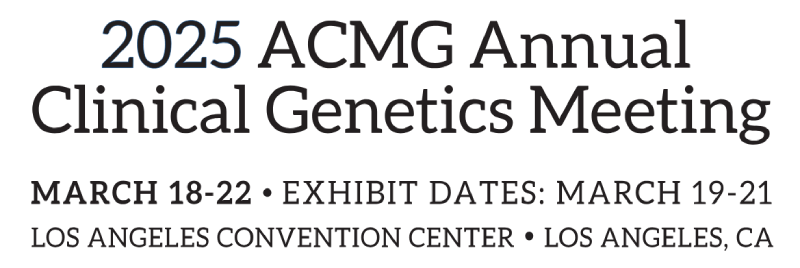PKU and Blood Phe: How Low is Low Enough? (This activity is supported by BioMarin Pharmaceutical, Inc)
18 Mar 2025
Venue:
JW Marriott Los Angeles LA LIVE
Meeting Room:
Gold Ballroom 1
ACMG offers industry and related organizations the opportunity to host non-commercial, grant-supported educational satellite sessions in conjunction with the meeting, enhancing the educational experience for attendees. Corporate Educational Satellite Sessions are planned solely by corporations/industry, ACCME providers, medical education companies and/or non-profit organizations. These sessions focus on highlighting new developments, generating interest in innovative products or services, and sharing the latest insights with meeting participants. These activities are not part of the official ACMG meeting programming and are not accredited by ACMG.
Cary Harding, MD, Oregon Health and Science University – Molecular and Medical Genetics
Kristin Lindstrom, MD, BioMarin Pharmaceutical Inc.
Brittany Murray, NP, Boston Children’s Hospital
Wendy Smith, MD, Maine Medical Center
Pre-registration is required.
For more information and to register
While elevated phenylalanine (Phe) levels can have detrimental consequences on overall health and well-being, numerous factors make sustaining metabolic control in phenylketonuria (PKU) challenging.
The symposium will feature an interactive panel discussion between experts sharing their valuable insights.
Faculty :Cary Harding, MD, Oregon Health and Science University – Molecular and Medical Genetics
Kristin Lindstrom, MD, BioMarin Pharmaceutical Inc.
Brittany Murray, NP, Boston Children’s Hospital
Wendy Smith, MD, Maine Medical Center
Pre-registration is required.
For more information and to register
Learning Objectives
- Learn more about the latest ACMG PKU Guidelines
- Understand the existing evidence supporting current blood Phe treatment targets
- Discuss the risks and benefits of aiming for normal Phe levels and the need for more evidence



)
)
)
)
)
)
)
)
)
)
)
)
)
)
)
)
)
)
)
)